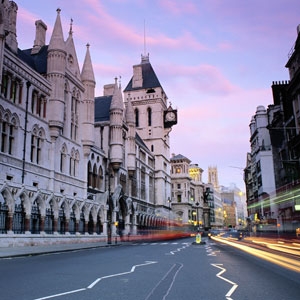The MRCGP exam is the ‘fairest and most robust’ means of ensuring that unsafe doctors are not allowed to practise, the High Court has heard.
The RCGP and the GMC have been defending themselves in the High Court against claims that ethnic minorities are being disadvantaged and subjected to racial discrimination in their attempts to enter the profession.
The British Association of Physicians of Indian Origin points to the wide disparity between the results of British and non-white candidates in the College’s entry exams and wants a full equality impact assessment carried out.
Both the College and the GMC hotly dispute BAPIO’s claims and are resisting the judicial review challenge.
Peter Oldham QC, representing the College, defended the CSA component of its membership exam as ‘the fairest and most robust’ means of ensuring that unsafe or incompetent doctors are not allowed to practise as GPs.
Attacking BAPIO’s case as ‘bad on the facts, however formulated’, the barrister said there was not the slightest evidence that any candidate had scored lower than he or she should have done by reason of examiner bias.
Far from having a closed mind or failing to focus on equality issues, the College had commissioned a vast amount of research to understand the reasons for differentials in performance in the CSA.
‘On the contrary, all the evidence is of an organisation that is greatly concerned with differential pass rates in the CSA’, added Mr Oldham.
Related stories
RCGP accused of discriminating against ethnic minority candidates in MRCGP legal case
Little improvement in international graduate scores on CSA, show new figures
Judicial review into claims of racial bias in MRCGP will begin in April
BAPIO did not dispute the absolute need for the competencies tested by the CSA, a test which was ‘of the utmost importance to public health’.
And the QC said: ‘The CSA protects the public against the very few who ultimately fail it…it is therefore an exam to ensure that unsafe or incompetent doctors are not allowed to practise as GPs. That plainly is a legitimate aim”.
Urging Mr Justice Mitting to dismiss BAPIO’s judicial review challenge, Mr Oldham said that the formulation of the CSA was non-discriminatory and ‘shows all the hallmarks of objectivity and careful thought’.
Disputing claims that the CSA discriminates against overseas medical graduates, who have more than double the failure rate of their British-educated counterparts, the barrister said there were a host of possible reasons why that was so.
Foreign graduates had to pass particular tests to embark on GP training – known as IELTS and PLAB – and Mr Oldham said it is the college’s stance that they are ‘too undemanding’ to necessarily put them on an equal footing with UK-trained doctors.
There were, said Mr Oldham, stark contrasts between the quality of medical training in various different countries and overseas graduates often faced a longer gap between qualification and taking the CSA.
The difference in exam results between overseas graduates and British-educated medics was a phenomenon seen across the entire medical profession and Mr Oldham said there was ‘nothing statistically aberrant’ about CSA results.
John Bowers QC, for the GMC – which has overseen the College’s curriculum since 2010 – insisted that the overall design of the CSA was entirely consistent with the Public Sector Equality Duty laid down by the Equality Act 2010.
Mr Bowers said the CSA is designed to test candidates’ rapport with patients as well as their clinical, professional, communication and practical skills.
And the QC told the court: ‘The GMC considers that the CSA fulfils its standards.’
Urging the judge to dismiss BAPIO’S challenge, Mr Bowers added: ‘The remedy sought by BAPIO of an equality impact assessment would not add to the exhaustive research which has already been carried out and the alternatives to the current model of the examination are not viable.’
He told Mr Justice Mitting that the GMC’s role was ‘strictly limited’ to ensuring that the college’s entry criteria met proper professional standards and it was not involved in selecting, appointing, training or supervising those who carry out the CSA.
Mr Bowers added: ‘Examinations are inherently difficult matters for a court to intervene in; there is no perfect system and normally the court will not interfere in what are essentially matters of academic judgment.’
The reasons for under-performance of some candidates were ‘multi-factorial’ and it was no part of the GMC’s ‘purely reactive’ role to develop or propose changes to the CSA.
Before the GMC approved the College’s curriculum and assessment processes in 2010, it had worked hard with the College to seek to identify causes of the differences in pass rates and to iron out any possible discriminatory effects, said Mr Bowers.
However, the QC said: ‘The only relevant substantive point to emerge from this research is that no-one has concluded that the CSA is in fact discriminatory. Much of the research concluded that the differences in pass rates could not be attributed to race discrimination.’
BAPIO’s criticism is focused on the Clinical Skills Assessment (CSA) element of the College’s membership (MRCGP) exams. With less than 40% of international medical graduates (IMGs) passing first time – compared with over 90% of UK graduates.
The judge is expected to reserve his decision on the case until a later date.
Pulse July survey
Take our July 2025 survey to potentially win £1.000 worth of tokens












